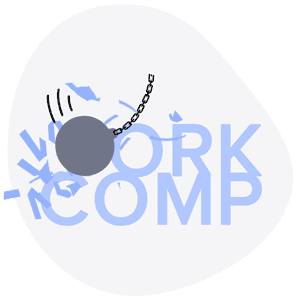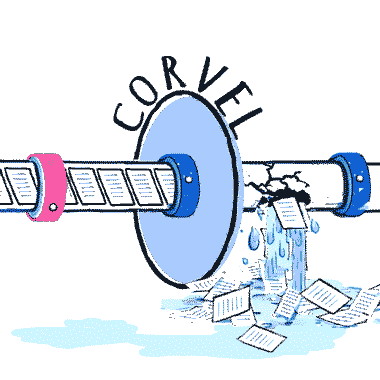Sedgwick's 57,876 Audit Complaints: A Business Practice?

Sedgwick received our open letter, but the Third-Party Administrator (TPA) still missed the memo.
Sedgwick administers claims on behalf of insurers and self-insured employers, which presumably expect Sedgwick to comply with state laws and regulations. In September, daisyBill pleaded with Sedgwick to get compliant; we are disappointed (but hardly surprised) to see the data below indicating Sedgwick ignored our pleas.
Currently as before, Sedgwick fails to return electronic Explanations of Review (e-EORs) for about a fifth of e-bills submitted by providers. Critical to e-billing, e-EORs automatically post the payment to the e-bill, saving providers countless person-hours of manual work — which is why California law requires claims administrators to return an e-EOR within 15 working days of receiving an e-bill.
But as we know, there is no law unless it’s enforced.
Today daisyBill filed Audit Complaints with the Division of Workers’ Compensation (DWC), reporting Sedgwick’s failure to send e-EORs to daisyBill providers for 31,906 e-bills in 2022. Previously daisyBill filed 25,970 Audit Complaints for the same violation, bringing the total to 57,876.
To address what may appear like a business practice of refusing to comply with California regulations on behalf of its clients, each month daisyBill will:
- Release hard data demonstrating Sedgwick’s non-compliance with California Electronic Data Interchange (EDI) regulations, and
- File credible Audit Complaints with the DWC reporting each instance of non-compliance.
Sedgwick’s clients might take notice that the TPA’s behavior may present obstacles to the care of those clients’ injured workers. Not only doctors are harmed by Sedgwick, as demonstrated by Sedgwick’s refusal to authorize care for a Trader Joe’s employee by citing a terminated Medical Provider Network (MPN).
For now, Sedgwick continues to frolic in the fields of the consequence-free environment that is California workers’ comp (for claims administrators, anyway).
Sedgwick: 22% of e-Bills Missing e-EORs (and Rising)
As of late September, the rate at which Sedgwick failed to return an e-EOR (in the mandated X12 835 format) stood at 23%. As 2022 monthly numbers continue to roll in, it’s clear that Sedgwick is making zero progress.
The table below reflects all e-bills sent to Sedgwick via daisyBill in 2022, except e-bills sent in mid-November (for which the 15-day e-EOR due date has not yet passed).
2022 Sedgwick CA Bill Count |
835 Missing Count |
835 Missing % |
Jan |
Feb |
Mar |
Apr |
May |
Jun |
Jul |
Aug |
Sep |
Oct |
Nov |
265,472 |
57,876 |
21.80% |
25% |
23% |
21% |
21% |
22% |
22% |
21% |
21% |
21% |
22% |
19% |
As the data reveal, Sedgwick’s non-compliance rate held steady in September and October, at 21% and 22% respectively. November's current 19% non-compliance rate will almost surely rise to Sedgwick’s pitiful standards, as the deadline to remit the remaining e-EORs passes with no change in Sedgwick’s behavior — and presumably no consequences for that behavior, either.
This brings the total to 57,876 e-bills for which Sedgwick failed to comply with e-billing regulations. That’s 57,876 times Sedgwick either:
- Did not pay the e-bill, or
- Snail-mailed an untimely paper EOR, forcing the provider to expend unwarranted resources posting manually, and wreaking havoc on Accounts Receivable
There remains no doubt as to whether Sedgwick received these e-bills, as reflected by ‘277 ACK’ digital receipts, which Sedgwick’s clearinghouses sent to the providers.
No Consequences, No Compliance
California Labor Code Section §129(b)(3) empowers the DWC to conduct a “targeted profile audit review” or “full compliance audit” at any time, based on information from:
“...reliable sources providing factual information that indicates…third-party administrator is failing to meet its obligations…or the regulations of the administrative director.”
Pursuant to §129, California Code of Regulations Section 10106.1(c)(3) instructs the DWC may target audit subjects based on:
“...credible complaints and/or information received by the Division of Workers' Compensation that indicate possible claims handling violations, except that the Audit Unit will not target audit subjects based only on anonymous complaints unless the complaint(s) is supported by credible documentation.
Additionally, California Labor Code Section 129.5(a) empowers the DWC to impose administrative penalties on a TPA for failure to
- Pay the “reasonable cost of medical treatment of an injured worker”
- Comply with any rule or regulation of the administrative director
Among other factors, the Labor Code empowers the DWC to impose penalties which give “due consideration” to
- The gravity of the violation
- The good faith of the insurer, self-insured employer, or third-party administrator
- The history of previous violations
- The frequency of the violations
Sedgwick’s violations of e-EOR requirements are grave, collectively evince a lack of good faith, stretch back over years of payment history, and occur at a frequency of precisely 21.8% for daisyBill providers alone; goodness knows what the statewide numbers are.
Sedgwick’s absurd rate of e-billing non-compliance is detrimental to countless providers, patients, patients, and employers. The only question is what California is willing to do about it.
daisyBill tracks responses to your bills, appeals, and RFAs — so your practice knows when payers break the rules. Click below to request a demonstration.
REQUEST DEMO
DaisyBill provides content as an insightful service to its readers and clients. It does not offer legal advice and cannot guarantee the accuracy or suitability of its content for a particular purpose.






